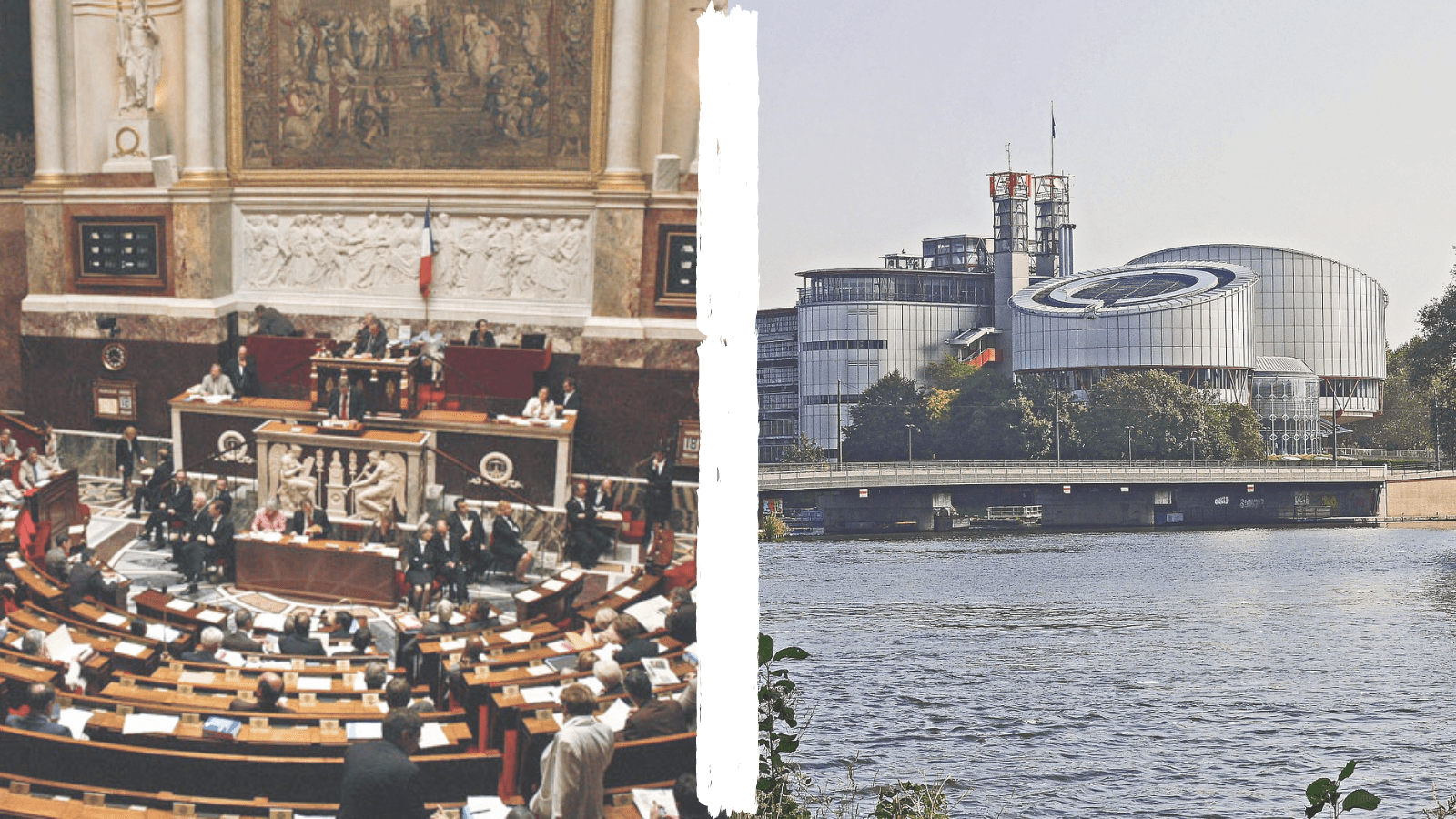Photo: The French Assememblée Nationale in Paris, and the European Court of Human Rights in Strasbourg.
Strasbourg, 3 November 2022 – Access Info, ARTICLE 19, and ten access to information organisations from across Europe have submitted a brief to the European Court of Human Rights in a case against France demonstrating that information about expenses by members of parliament (MPs) falls under the scope of access to information laws and should be disclosed.
Gathering comparative law and practice from across Europe, the third-party intervention – also known as an “amicus curiae” or friend of the court brief – was prepared by Access Info Europe and ARTICLE 19, along with FOI Austria, Access to Information Programme Bulgaria, Gong (Croatia), Vouliwatch (Greece), K-Monitor (Hungary), Daphne Caruana Galizia Foundation (Malta), Watchdog Poland, Funky Citizens (Romania), Campaign FOI Scotland, and Oštro (Slovenia).
The case Regards Citoyens vs France dates back to May 2017, when Regards Citoyens asked the French parliament for information on MPs expenses such as statements from the dedicated bank accounts for these expenses and the annual declarations of honour that the expenses were used exclusively for costs related to the parliamentary mandate.[1]
The legal issue is that, in France, documents held by the legislature are not considered to be administrative documents and so, at every level of the appeal system, including the Commission on Access to Administrative Documents and the Administrative Court, the Regards Citoyens request was rejected. The Council of State refused to consider this to be a constitutional question, after which Regards Citoyens turned to the European Court of Human Rights arguing a violation of Article 10 of the European Convention on Human Rights on the right to freedom of expression.
Read here the brief submitted to the European Court of Human Rights.
The brief provides international standards and comparative data on the right to information from the legislative branch of government and, in particular, the right to access the expenses of members of parliament. It demonstrates that international standards, comparative law from the Council of Europe region, and the Council of Europe Tromsø Convention all make clear that at the very least administrative documents such as the spending of money by parliamentarians should fall under the scope of access to information laws.
Barbora Bukovska, Senior Director for Law and Policy at ARTICLE 19 stated:
“Transparency of MPs expenses has a crucial role for citizens in holding their elected representatives to account and the public should be entitled to know how MPs are using public money to exercise their functions.”
Helen Darbishire, Executive Director of Access Info Europe, stated:
“International and comparative standards make clear the legislative branch is covered by the right of access to information, and there is a clear public interest in such transparency so as to prevent corruption and strengthen trust in this core pillar of any democratic system.”
The European Court of Human Rights will now provide the parties to the case with the opportunity to comment on the amicus curiae brief. The decision is expected in 2023.
Notes
[1] Case of Regards Citoyens v. France, Application No. 11519/20

